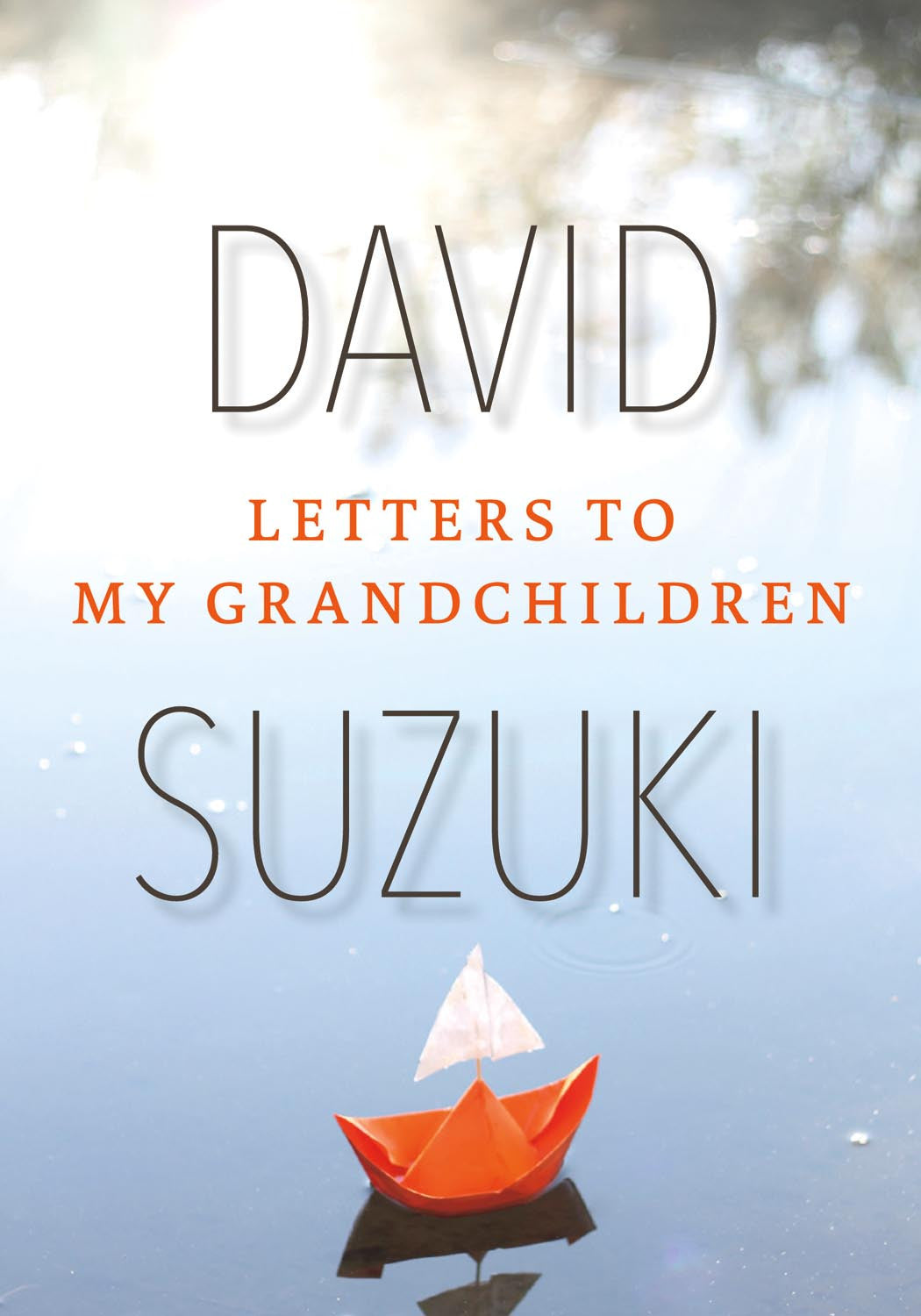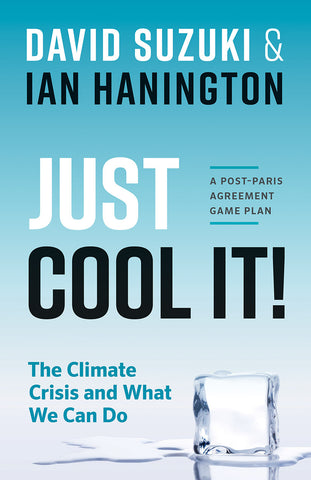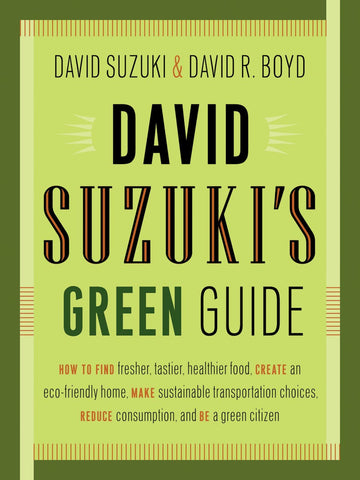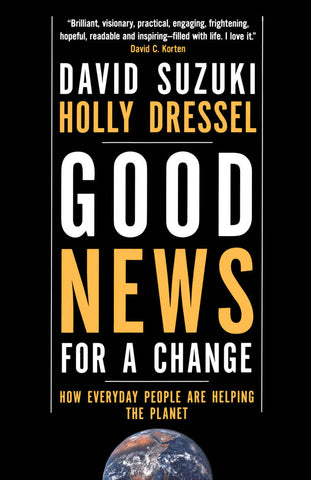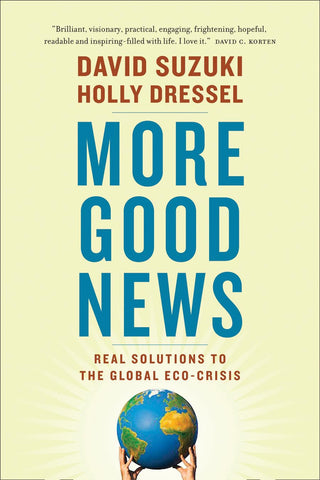Letters to My Grandchildren
- ISBN: 9781771640886
- Tags: Audiobook Available, Biography & Memoir, David Suzuki, Gift, Nature & Environment,
- Dimensions: 5.25 x 7.5
- Published On: 5/15/2015
- 248 Pages
- ISBN: 9781771642347
- Tags: Audiobook Available, Biography & Memoir, David Suzuki, Gift, Nature & Environment,
- Dimensions: 5.5 x 7.75
- Published On: 08/05/2016
- 248 Pages
- ISBN: 9781771640893
- Tags: Audiobook Available, Biography & Memoir, David Suzuki, Gift, Nature & Environment,
- Published On: 5/15/2015
- 248 Pages
Audiobook Available (Complete List from Greystone)
“...deeply personal and purposefully universal. Suzuki addresses weighty topics in a clear, conversational manner, and his thoughts should be of interest to a wide readership." – Publishers Weekly
Advice, stories, and inspiration from a revered leader and thinker
In these inspiring letters to his grandchildren, David Suzuki speaks passionately about their future. He challenges them to speak out and act on their beliefs, explains why sports are important, decries the lack of elders and grandparents in the lives of many people, especially immigrants, and champions the importance of heroes.
The most personal of his books, Letters to My Grandchildren includes stories from Suzuki’s own remarkable life—such as how he spent summers harvesting potatoes and celery as a child to make money for his family and why he has always preferred to work in radio rather than TV. He also provides an intimate look at his life as a father and grandfather and writes moving individual letters to each of his six grandchildren, including letters to his two Haida grandchildren about the importance of their First Nations heritage. And he speaks candidly and eloquently about old age and death.
As he ponders life’s deepest questions and offers up a lifetime of wisdom, Suzuki inspires us all to live with courage, conviction, and passion.
Published in Partnership with the David Suzuki Institute.
David Suzuki is an internationally renowned geneticist and environmentalist and a recipient of UNESCO’s Kalinga Prize for the Popularization of Science and the 2009 Right Livelihood Award. Host of the longrunning CBC television program The Nature of Things, he is also the author of more than fifty books.
From Chapter 1: In Search of Roots
My darling grandchildren,
I write to you—Tamo, Midori, and Jonathan—as adults, and to you—Ganhi, Tiis, and Ryo—as the older children or young adults you will be when you read this letter. First, though, thank you for sharing your lives with me; it has been a delight to watch each of you since you were a baby and to bear witness to the miracle that every life is. You have been such a joy and have brought so much happiness (and a headache or two) into my life. Thank you, thank you for the privilege of being Grandpa or Bompa to you.
Even though three of you—Tamo, Midori, and Jonathan— were born in the 1990s, you will spend most of your lives in the twenty-first century. And of course, Ganhi, Tiis, and Ryo, your entire lives will be spent in the twenty-first cen¬tury. The stories from my life that I will recount here will seem like the stuff of history books to you because what is my living memory you know only through books, movies, and videos.
A few years ago, Nana and I visited Japan, and while we were in Yokohama, we visited the last ship (Hikawa Maru) to regularly make the trip from Japan to North America. Launched in 1929, it crossed the Pacific from Yokohama to Seattle and carried 75 first-class, 70 tourist-class, and 186 third-class passengers. It’s now a museum, and we were fascinated as we walked through it. Each class was on a separate floor and had its own kitchen. First-class passengers travelled in luxury on the top level, with art deco furnishings, lace curtains, and mahogany woodwork. Third class passengers were confined to the bowels of the hold deep below the other passengers and next to the immense engines driving the vessel—where it was hot, noisy, and smelly. The royal family had made a trip in that ship, where they occupied the sumptuous top floor. Charlie Chaplin crossed the ocean in the ship as well.
My grandparents had come over much earlier, between 1904 and 1908, and I am sure they travelled in a far less hospitable ship and under worse conditions. They were poor and spent years in Canada paying back the cost of the trip. I imagine they came on a tramp steamer, a cargo ship that took at least three weeks to make the crossing. How tough it must have been, crammed into a tiny space, under heavy seas, with no opportunity to go on deck and breathe fresh air! And remember, there were no television sets, movies, radios, or telephones. Visiting the Hikawa Maru filled me with admiration for my grandparents’ willingness to take a chance and immigrate to Canada. It must have been a harrowing trip, and they must have felt they were leaving Japan forever.
My father’s parents never did make a trip, or even a phone call, back to Japan. After being kept in camps during World War II, my mother’s parents decided to leave Canada. They were dropped off in Hiroshima, which had been flattened by the first atomic bomb ever dropped over a city. I can only imagine the suffering of the terribly injured survivors, who had radiation burns and other damage that had never been encountered before, and who needed medical help, food, and shelter. All of Japan had been hammered by war, but Hiroshima was in a category by itself. Not surprisingly, my elderly grandparents both died less than a year after their return.

